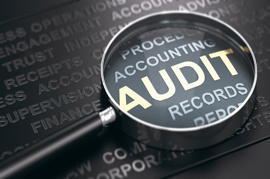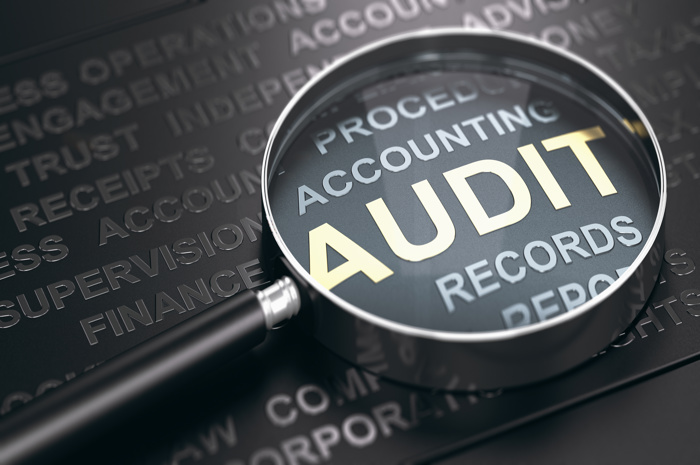Company Types in the UK
Your company type can affect the way in which your business grows, pays tax and makes decisions, and the best type of company for you will largely depend on what your business has set out to achieve. While the vast majority of UK companies fit within a private limited structure, (Ltd or LLP) there are certain use cases where a Charity or CIC (Community Interest Company) might be a better legal structure for your organisation.
Put simply – company structure determines the activities you can undertake as a business and which taxation rules apply, so it’s important to ensure you choose the most appropriate company type from the start.
LTD vs LLP vs Charity vs CIC
In the UK, all types of company have to submit information to Companies House and HMRC to stay compliant, however, the filing requirements will depend on which type of company you have chosen, and whether you have registered for PAYE and/or VAT.
This article will explore the filing requirements for the four main types of UK companies - Private Limited Companies, Limited Liability Partnerships, Community Interest Companies, and Charities.
Private Limited companies (LTD's)
A limited company is a type of company where there is legal separation between the owners and the company itself, which becomes its own legal entity. This means that a limited company can enter into contracts, own properties, sue and be even be sued! The majority of trading companies in the UK are private companies limited by shares, and there are currently over 5 million companies registered at Companies House.
The 2 types of private limited companies are:
'Limited by shares' - usually, the type of company that is limited by shares are profit-making businesses, that can have shares and shareholders; as well as being able to keep the profits after meeting tax requirements.
‘Limited by guarantee’ - on the other hand, companies limited by guarantee are usually not for profit, meaning revenue is invested back into the business, and that the business is protected by ‘guarantors’, who agree to pay money into the company to keep it afloat if it falls into debt.
Filing requirements for Private Limited Companies
Companies House
Annual accounts
Private Limited Companies are expected to submit an income statement and company balance sheet to Companies House each year. The due date of the annual accounts (also referred to as abridged accounts) will depend on when your company's accounting period ends, typically 9 months after the company’s accounting period end date.
For example - a company with an accounting period end date of 31st May 2024 will have to submit a company balance sheet to Companies House by 1st March 2025.
Confirmation statement
In addition to the company balance sheet, confirmation statements should also be filed annually to confirm the company’s registered details on Companies House. The due date for filing your first confirmation statement is up to 14 days after the end of the first 12 months of trading.
HMRC
Corporation tax returns - CT600s
Limited Companies are required to submit CT600s (corporation tax returns) accompanied by full set of accounts (Income statement and Balance sheet) within 12 months of the accounting period end date.
For example - a company with an accounting period end date of 31st March 2024 will have to submit corporation tax returns to HMRC by 31st March 2025.
VAT (Value Added Tax)
Alongside filing a CT600, if a company is VAT registered, then it will be also expected to submit VAT returns quarterly, due 1 calendar month and 7 days after each 3-month VAT accounting period.
Limited Liability Partnerships (LLP's)
A limited partnership or limited liability partnership (LLP) is similar to a limited company in that it operates as a separate legal entity from its members, however, it requires a minimum of 2 partners operating as a traditional partnership (without limited liability) or as a limited liability partnership (limiting the financial responsibility of members).
The legal business structure of an LLP requires that it is profit-making, so it cannot be used by non-profit organisations like CICs or charities.
Filing requirements to Companies House
Annual accounts and Confirmation statements
Similarly to limited companies, LLP’s must submit annual accounts to Companies House, the filing deadline of which is 9 months after the accounting period end date. Confirmation statements must also be submitted once a year.
Filing requirements to HMRC
Partnership tax returns - SA800 and SA100
LLP's must send SA800 returns to HMRC, however, individual partners must also file their own personal self-assessment tax returns SA100 returns, summarizing their individual profit share. Notable the deadline for filing your first SA800 is the same as the Self-Assessment deadline (31st October by post and 31st January for digital submissions)
VAT
If a Limited Partnership or Limited Liability Partnership is VAT registered, then the rules for submitting VAT returns are the same as for Limited Companies- once every quarter and no later than 1 month and 7 days after each VAT payment.
Community Interest Companies (CIC's)
Community Interest Companies (CIC’s) are not for profit companies which provide a benefit to the community. The legal structure of a CIC is the same as a limited company, either limited by shares or limited by guarantee. A fundamental feature of CIC’s is the ‘Asset Lock’ which is a legal clause that prevents the assets of the company being used for private gain, rather than for the purpose of the organisation.
Filing Requirements for a CIC
Companies House
Annual accounts and Confirmation statement
Just like a limited company, CICs are required to submit annual accounts, (income statement and company balance sheet) due 9 months after the accounting period end date, and a confirmation statement once a year.
Community Interest Report (CIC 34 Report)
Additionally, a CIC must also submit a Community Interest Report (form CIC34) along with a £15 administration fee every year
HMRC
Corporation tax returns (CT600s)
A CIC is also required to submit corporation tax returns in the same way as a limited company 12 months after their accounting period end date.
VAT returns
If the CIC does not have a VAT exemption and is registered for VAT, then similarly to limited companies' requirements- quarterly VAT returns should be filed to HMRC.
Charities
Charities are not for profit organisations that exist for the public benefit by operating exclusively for charitable purposes, and registered with the Charity Commission.
There are 4 ways to structure a charity:
Charitable companies (limited by guarantee) - must be registered with both Companies House and the Charity Commission
Charitable Incorporated Organisations (CIOs) - only regulated by the Charity Commission
Charitable Trusts – regulated by the charity commission
Unincorporated Association - such as not-for-profit clubs
A charity’s annual reporting obligations will differ depending on the charity’s gross income, asset value, and whether it is registered with Companies House and the Charity Commission or solely registered with the Commission.
Filing requirements to Companies House
If a charity is registered with Companies House, it is a Charity Limited by guarantee and must submit both annual accounts and a trustee’s report to Companies House.
Annual accounts and Trustee's report
Charities meeting the definition of a small company can choose not to file their profit and loss account and directors’ report (i.e. trustees’ report), however they are required to include these in publicly available accounts that they file with their regulator, so most charitable companies file their full accounts to Companies House.
Filing requirements to the Charity Commission
All registered charities must file the following documents:
Annual return
Charities must send an annual return or report their income and spending every year. The filing due date for the annual return is within 10 months of the end of the Charity's financial year.
For example, if your financial year end is 31st December 2024 your deadline is 31st October 2025.
Annual accounts
All charities (whether registered with the Charity Commission or not) must prepare accounts and make them available on request.
A trustee's annual report
All registered charities must prepare a trustees’ annual report and make it available on request.
Filing requirements to HMRC
Corporation tax
Typically, Charities are exempt from paying corporation tax on most types of income as long as they use the money for charitable purposes. But in order to benefit from tax relief, the charity has to be recognised by HMRC.
VAT returns
Charities are not exempt from VAT, but are eligible for reliefs, so if the charity is VAT registered - they will have to file VAT returns annually.
We are Tax Filing Experts
At Easy Digital Filing, we specialise in helping small and micro companies file their taxes and accounts with Companies House and HMRC, ensuring that they meet their legal obligations and file on time using our simple, intuitive software. Try for free on Easy Digital Filing or send us a message and we will be happy to assist you.























